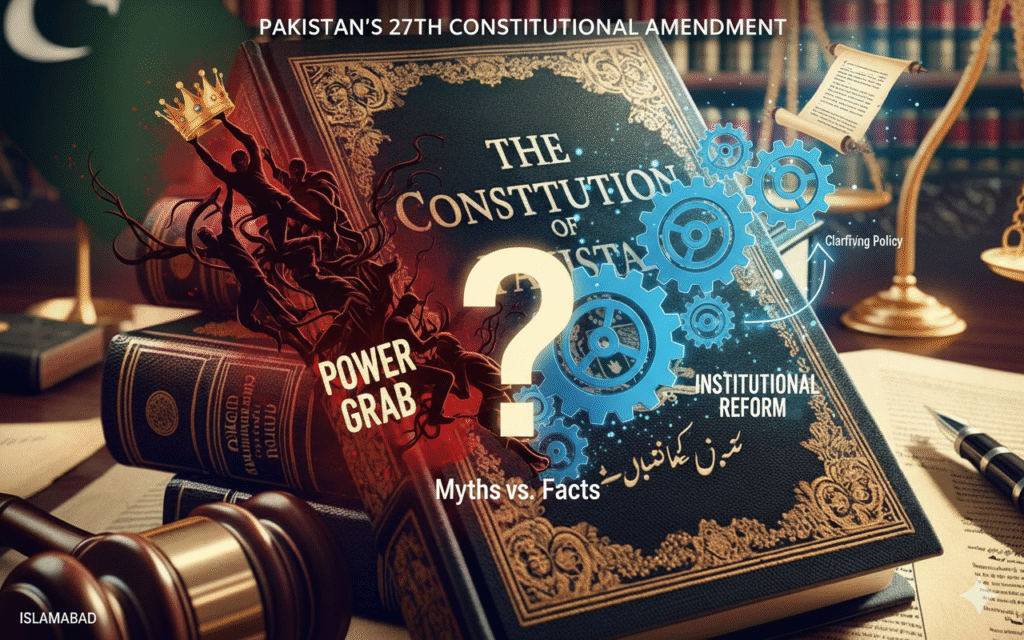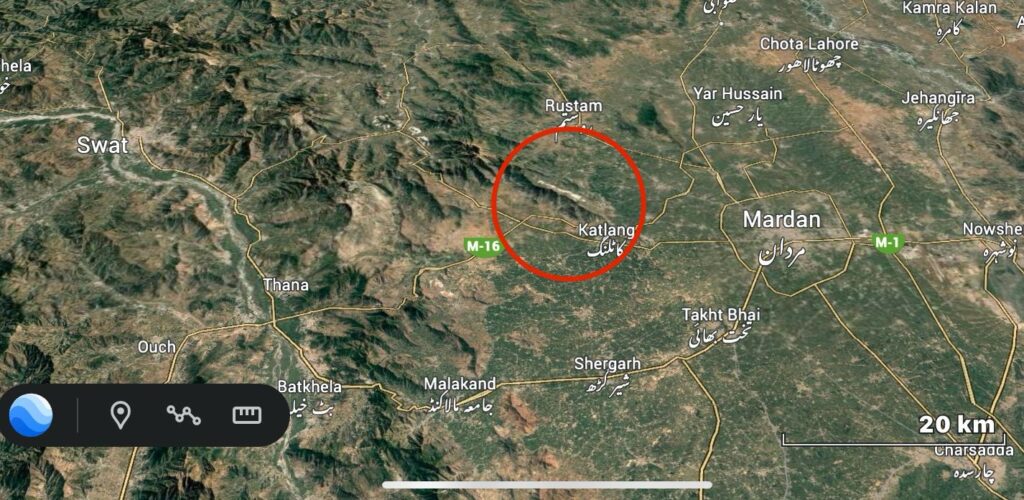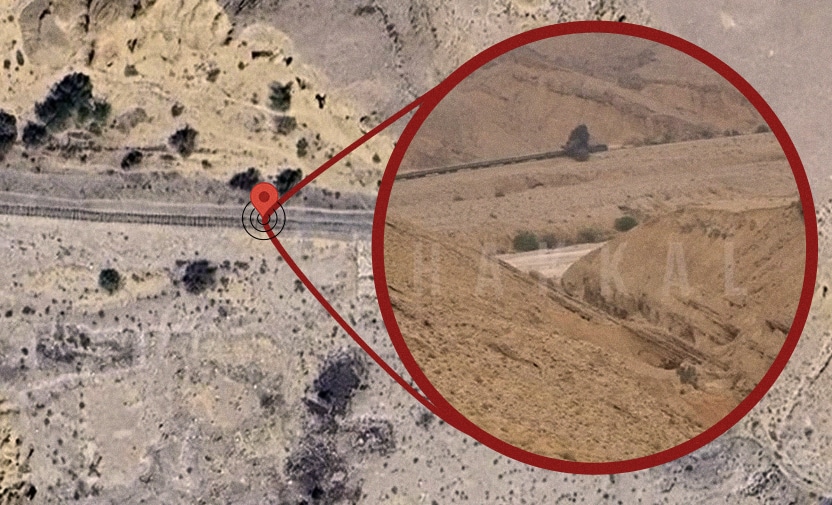ISLAMABAD: Pakistan’s proposed 27th Constitutional Amendment has sparked heated debate across political and media circles, with critics calling it a “power grab” and supporters framing it as a long-overdue institutional reform. Amid speculation and political noise, the following key facts separate perception from policy — clarifying what the amendment actually seeks to change, and what it does not.
Myth 1: “It’s a power grab by the establishment.”
Fact: The amendment focuses on institutional efficiency, not control. It proposes a Constitutional Court to handle constitutional disputes quickly, allowing the Supreme Court to focus on appeals and legal precedents.
Myth 2: “It weakens judicial independence.”
Fact: The reform strengthens the judiciary through structure. By standardizing judicial postings and tenures, it curbs favoritism and ensures independence as a systemic standard, not a personal privilege.
Myth 3: “It rolls back provincial autonomy and the 18th Amendment.”
Fact: The NFC Award review targets fiscal balance, not centralization. The goal is to close the revenue–expenditure gap so that devolution remains financially viable, not just constitutional on paper.
Myth 4: “Changes to Article 243 will politicize the Army.”
Fact: The revision modernizes command concepts without altering hierarchy. It aligns Pakistan’s defence framework with modern warfare needs — ensuring civil–military coordination within constitutional limits, as practiced in countries like China and India.
Myth 5: “It weakens the Election Commission.”
Fact: The amendment strengthens the ECP’s autonomy. By ending political deadlocks in appointments and introducing neutral timelines, it promotes transparency and institutional independence.
Myth 6: “Restoring magisterial powers revives old executive control.”
Fact: The reform introduces limited magisterial authority under judicial oversight. It’s designed to resolve minor disputes faster and make justice more accessible at the grassroots level.
Also Read: 27th Constitutional Amendment in Pakistan: Centralisation vs autonomy
Myth 7: “It’s a revolutionary overhaul of the system.”
Fact: The 27th Amendment represents evolution, not revolution. It reflects Pakistan’s constitutional maturity — aiming to enhance institutional performance rather than redistribute power.





